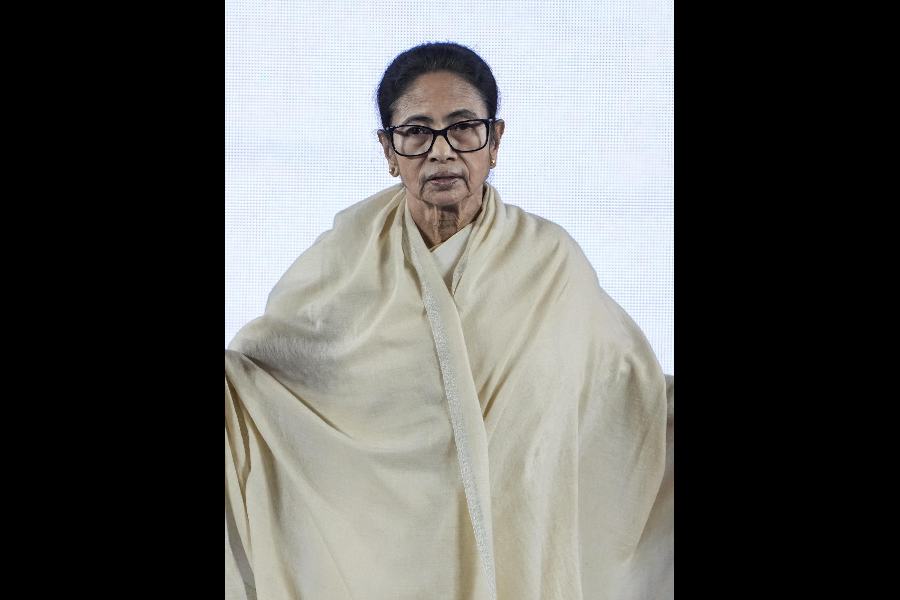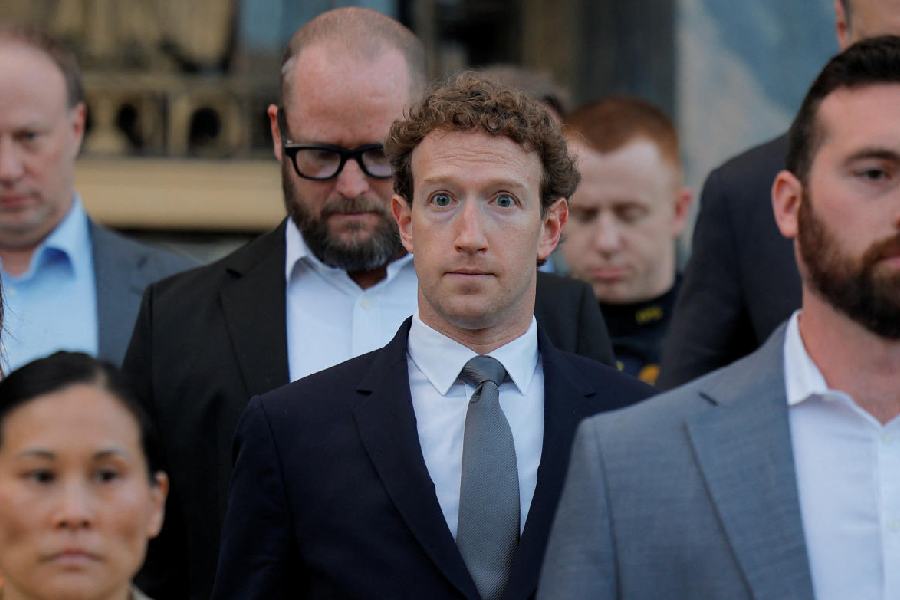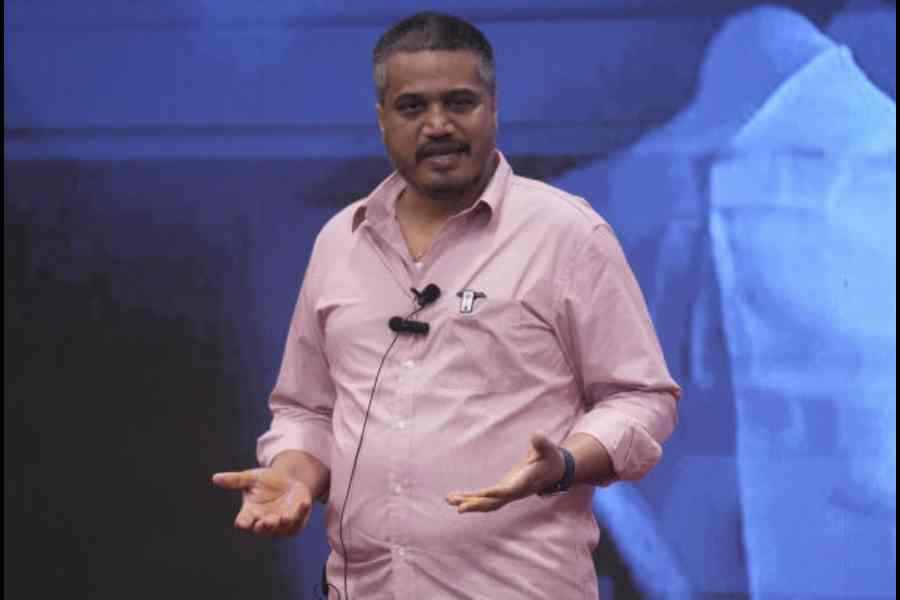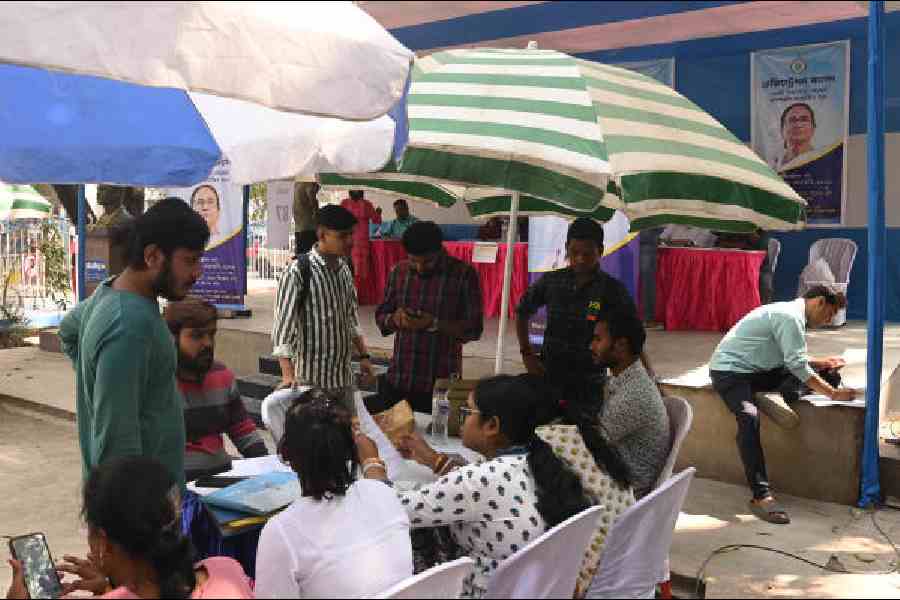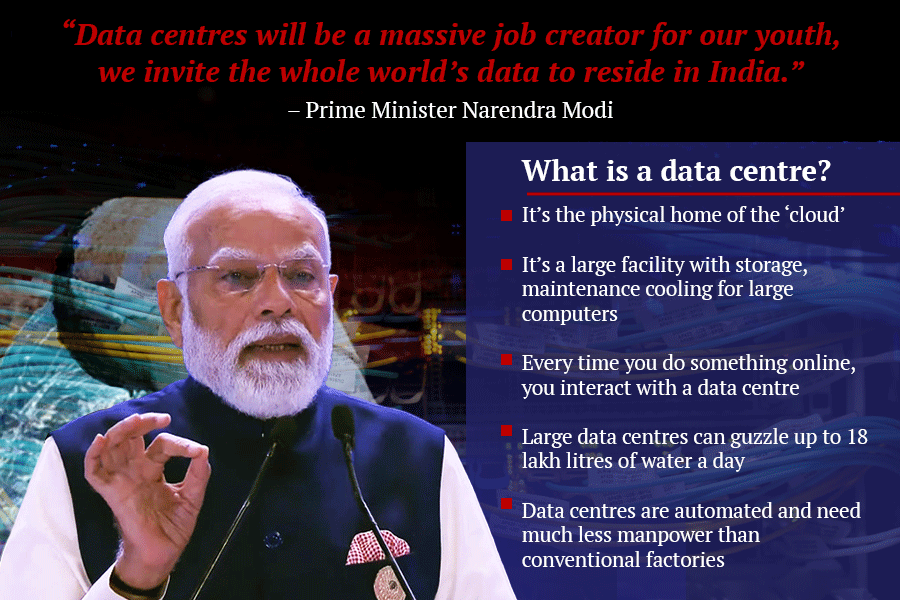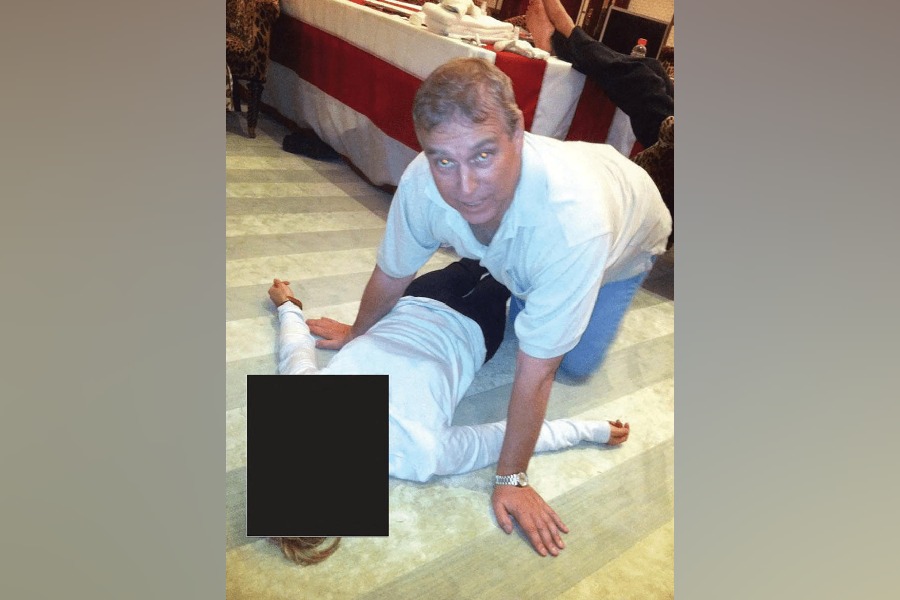 |
| Rajnath in Washington. (PTI) |
Washington, July 28: Rajnath Singh, the BJP president, ended his six-day tour of the US and returned home this weekend, leaving many Americans with an interest in India hoping that Manmohan Singh would return as Prime Minister after the next general election.
Confusion, lack of clarity, mixed messages and a questionable fundraising effort dogged the BJP president throughout his stay in Washington and New York, robbing the main Opposition party of an opportunity that was available on a platter to present an alternative vision to nine years of UPA rule to an international audience.
The Obama administration completely ignored Rajnath’s four-member delegation, comprised of Bangalore MP Ananth Kumar; Vijay Jolly, former Delhi MLA and convener of the party’s “overseas affairs”; and Sudhanshu Trivedi, spokesperson and political adviser to Rajnath.
Not a single administration official met the delegation. They kept away from events where Rajnath spoke, even those of a think-tank nature, which are normally attended by state department officials as part of their routine outreach.
Asked about this omission at a breakfast with Indian journalists here, Rajnath dismissed it with the lame excuse that William Burns, the deputy secretary of state, had met him in New Delhi only a few days ago and that meetings with officials here would, therefore, have been redundant.
On Capitol Hill, American politicians readily opened their doors to the delegation as fellow politicians from one of America’s friendliest countries.
But at the end of their meetings with Rajnath, senators and members of the House of Representatives were more confused about what the BJP stood for than they were before they encountered him.
No senator or Congressman or their aides would go on record, understandably reluctant to criticise a friendly visitor and a potential Prime Minister of India or at least a senior cabinet member in future.
But privately, this correspondent was told on behalf of those from Capitol Hill who interacted with Rajnath that if this was an example of what was in store for India in the event of the NDA forming the next government, the country and the momentum in Indo-US relations that Atal Bihari Vajpayee and Jaswant Singh triggered 15 years ago would be more secure with the UPA returning to power.
Those with insider knowledge of Rajnath’s American itinerary, who spoke anonymously to ensure a free and frank discussion, did not blame Rajnath. They rationalised that he is a heartland leader with a good grasp of domestic politics, but unfamiliar with the intricacies of international affairs unlike BJP leaders in erstwhile ministerial offices who are known to America: Vajpayee, L.K. Advani, Jaswant, Arun Jaitley or Arun Shourie.
It was very clear that those who organised the BJP president’s US tour did not educate him on any aspect of Indian foreign policy or Indo-US relations, which are not his strong points. As a result, the BJP delegation appeared to those Americans who interacted with its members to be merely a “B” team of the UPA on foreign policy.
A huge gaffe came when Rajnath said at one of his meetings here that India’s relations with its neighbours were very good. The fact, perhaps untold to Rajnath, is that after nine years of UPA rule, New Delhi’s relations with every one of its neighbours — the latest being tiny and hitherto loyal Bhutan — is bad to critically bad.
Dealings with Bangaldesh, the only friend in the neighbourhood, are expected to plummet after elections bring a change of government in Dhaka. Ditto for Nepal.
Rajnath also flummoxed his audience, who were expecting the BJP to have its own foreign policy when he said there will be “no major changes in foreign policy, only some adjustments” if his party came to power.
Another gaffe came at a conference on Afghanistan where the BJP president read out a speech in English, parts of which were a virtual repetition of ideas in eerily similar language from a speech at the same conference, delivered an hour earlier by former foreign secretary Kanwal Sibal.
This triggered speculation that Sibal, who heads the Centre for International Relations and Diplomacy at the BJP-leaning Vivekananda International Foundation, had written Rajnath’s speech. But the BJP president denied it and said he had only met the former foreign secretary at the conference.
Rajnath’s decision to speak on Afghanistan, not on Indo-US relations, the BJP’s global vision or on anything at all on India, raised eyebrows. India’s involvement in Afghanistan is tangential and largely development-oriented compared to Washington’s and the focus here now is solely about the US withdrawal next year.
Prestigious think-tankers here said that if the BJP had approached any of them to serve as a forum for outlining the leading Opposition party’s agenda for India before an American audience, they would doubtless have agreed with an election round the corner.
But those who planned Rajnath’s programme chose an Indian American organisation with an unsteady record for the BJP president to speak on a non-Indian issue during his only public appearance in Washington. Two other little-known Indian American organisations collaborated in that effort.
Other than a meeting of the Overseas Friends of the BJP in New Jersey, Rajnath spoke at an Indian American business organisation in Manhattan that is run by an Indian who advertises himself as a Congress party follower. It reinforced the notion here that the Opposition party had become no more than a “B” team of the ruling coalition in New Delhi, at least in its north American outreach.
The National Indian American Public Policy Institute, an Illinois-based organisation, which has launched a “Modi vision movement” and has formally registered its motto of “Reclaim Bharat Pride” as a trademark in the US, did considerable damage to the BJP president’s US mission when it tried to collect money ranging from $500 to $10,000 per person for graduated levels of access to Rajnath in Washington.
The institute, which took a delegation that included American legislators to Gujarat for a well-publicised meeting with chief minister Narendra Modi in March, eventually cancelled a “groundbreaking and historical Bharat Day event” with Rajnath on Capitol Hill after a firestorm over its plans to put the BJP president on its shelf in exchange for cash here.
An email from the organisation seeking money for tiered access to the BJP president is in the possession of this newspaper.





